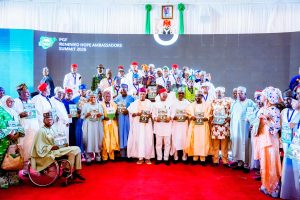The Nigerian House of Representatives has taken a significant step towards transitioning from the current presidential system of government to a parliamentary model. This move comes as the House introduced three bills aimed at amending the 1999 Constitution to implement the change at all levels of government – federal, state, and local.
Sponsored by the Minority Leader, Hon. Kingsley Chinda, along with 59 other lawmakers, the bills titled Constitution of the Federal Republic of Nigeria, 1999 (Alteration) Bill, 2024 (HB.1115, HB.1116, and HB.1117) passed the first reading during plenary on Wednesday.
The proposed legislation seeks to replace the president with a prime minister who would serve as the head of government. It also aims to establish the office of the president as a ceremonial leader, with elective positions chosen from elected members of the legislature.
Additionally, the bills intend to change the process of electing governors and local government chairpersons from general elections to voting within their respective legislative bodies. The objective is to reduce bureaucratic hurdles and promote closer collaboration between the executive and legislative branches of government.
Speaking to journalists about the bills, Hon. Abdussamad Dasuki, spokesperson for the sponsors, emphasized that the proposed alterations, if passed, would significantly impact Nigeria’s political landscape.
He pointed out that the parliamentary system of government, which was practiced during the First Republic, proved effective for the country. In this system, elected representatives in both the legislative and executive branches were directly accountable to the people.














